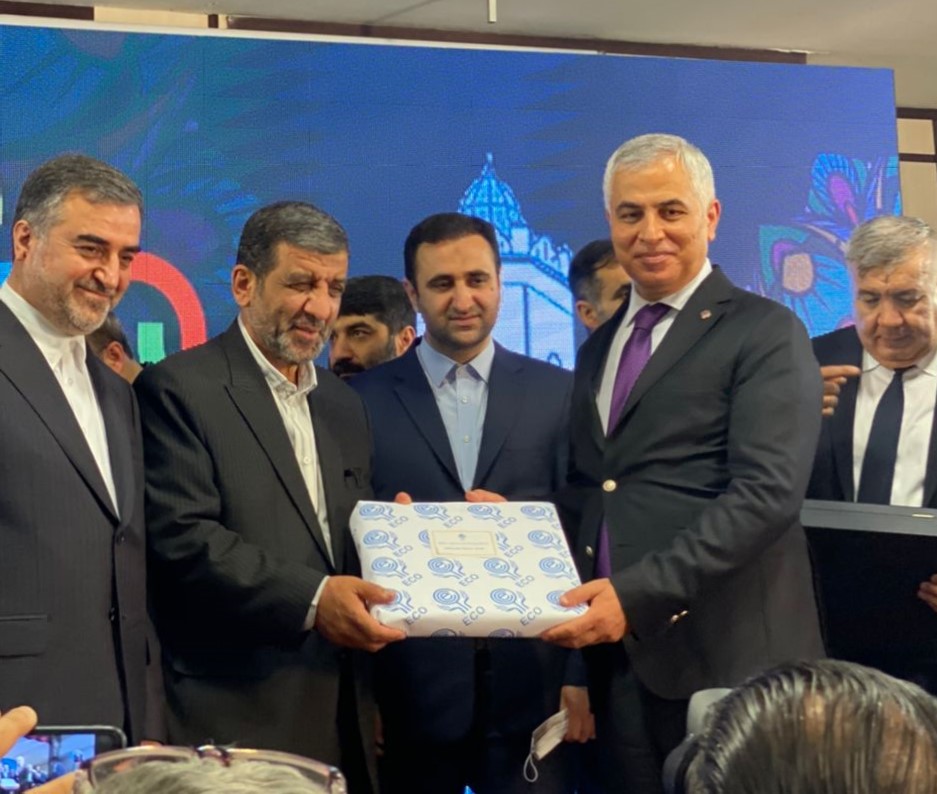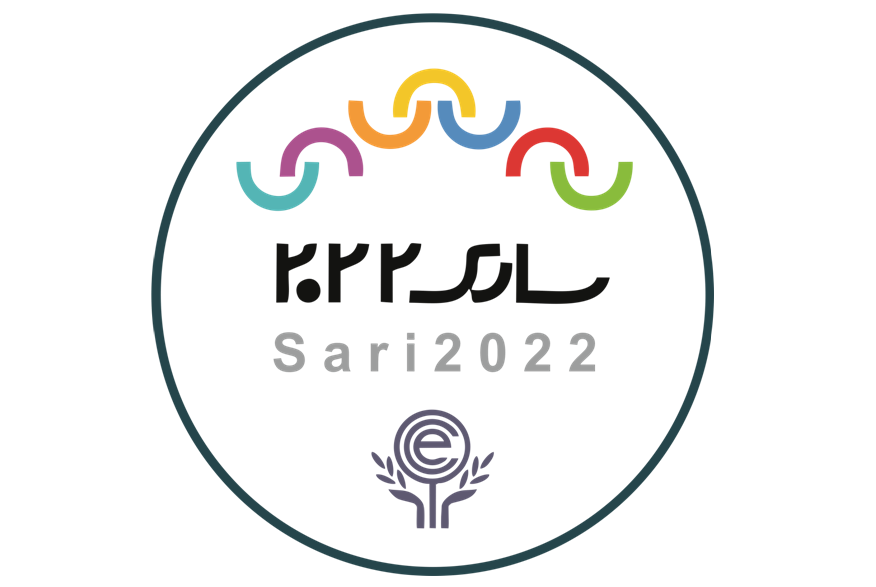Sari, the capital of Mazandaran, is the biggest and most populated city in the province. The city is located in northern Iran, between the slopes of the Alborz Mountains and the southern coast of the Caspian Sea.
The city has been mentioned in Ferdowsi’s magnum opus, the Shahnameh (Book of Kings), which recounts Iran’s mythical and historical past. Excavations at Hutto and Kamarband Caves have provided evidence of the existence of settlements around Sari as far back as the 7th millennium BC.
Throughout its history, Sari has served as the capital of several local dynasties including the Bavandids (651-1349). Resket Tower is one of the tomb structures from this era. Lajeem is another similar tower believed to be a post-Bavandid structure.
In the Safavid era, the founder of the dynasty, Shah Abbas I (1571-1629), created his alternate capital in Farahabad just outside Sari. Shah Abbas is said to have chosen this location as his mother originated from Behshahr a town in Mazandaran Province. When the Qajar came to power they made Sari the capital of Mazandaran once again and the city became the center of their rule for a short period. The founder of the Qajar Dynasty Agha Mohammad Khan (1742-1797) originally held a coronation ceremony in Sari before moving his capital to Tehran.
The laying of the first Iranian railroad network began in this city. Sari has also been noted throughout history for its nature and many orange groves. The unique Badab-e Surt natural spring, which is the second registered natural attraction of Iran, is located in the Chahardangeh district of Sari.
The city’s Sa’at Square is one of the notable landmarks of the city. Local residents are known as Saravis or Sariyan. The population is a mixture of native Mazandaranis, Persians speaking people, Azerbaijanis, Caucasians, Kurds, and Turkmens.
Whereas neighborhoods were identified during the Qajar dynasty by the ethnicity of their inhabitants, this is no longer so. Sari, as well as other regions innorthern Iran, is well known for its hospitality. Sari used to be the home of Georgians, Armenians, and Zoroastrians, but today they are only from small minorities.
Local languages are spoken in some neighborhoods, but almost everyone understands and uses mainstream Persian as a lingua franca.
The unique nature and wildlife and favorable weather conditions have made the city very popular. Sari has distinct and manifold beauties and attractions and being a four-season city gives tourists the chance to enjoy the unique nature at any time of the year.
Besides, the local foods of Sari and its special souvenirs are very attractive to travelers and tourists. Sari’s handicrafts are also the manifestation of the art of the people who lived in the Caspian Sea region for many years and created the arts that are of interest to everyone today.
Textiles, wood carving, sock weaving, lacquer making, mat weaving, carpet weaving, jajim weaving, pottery, and carpet weaving are among the major arts of the people of Sari.
Last but not least, Sari is of special importance due to its location on the route connecting the east to the center of Iran. This city is adjacent to the Caspian Sea from the north and the forest and river from the south. Like other northern cities, Sari is a citrus producer and one of the hubs of rice and livestock products in the country. Also, Mazandaran Wood and Paper Company, one of the largest paper-producing companies in the Middle East, is located in Sari.
Source: ECO Heritage, Sari City Special Issue of ECI December 2022
Celebrations of the ECO Tourism Capital in 2022
Sari, the capital city of the Mazandaran Province of the Islamic Republic of Iran, was declared by ECO to be its Tourism Capital for 2022. The occasion, organized on May 10, 2022, was graced by the presence of the Governor General of the Mazandaran Province, ambassadors and other diplomats based in Iran, Secretary General of the ECO and his relevant staff as well as the heads of Iranian Tourism Business Associations. During the event, the ways and means to develop and expand the ECO cooperation in tourism industry, especially in the post-COVID scenario, were explored.
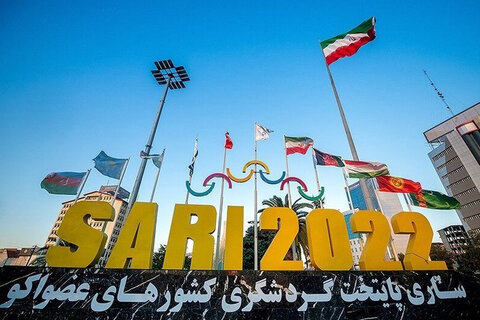
Sari, the capital city of the Mazandaran Province of the Islamic Republic of Iran, was declared by ECO to be its Tourism Capital for 2022. The occasion, organized on May 10, 2022, was graced by the presence of the Governor General of the Mazandaran Province, ambassadors and other diplomats based in Iran, Secretary General of the ECO and his relevant staff as well as the heads of Iranian Tourism Business Associations. During the event, the ways and means to develop and expand the ECO cooperation in tourism industry, especially in the post-COVID scenario, were explored.
Inaugurating the festive ceremony, the Governor General of the Mazandaran Province, H.E. Seyed Mahmoud Hosseinipour welcomed and thanked the participants for attending the event. He made a detailed presentation on industrial and transit-transport potential of the Province, noting that the tourism industry that bears diversity of attraction in nature, health, agriculture etc., has got a huge potency for creating investment and job opportunities and thereby augmenting the sustainable development targets. He emphasized that the ECO Member States could benefit from such a scope and geographical location of the Province which possesses three seaports on the shore of the Caspian Sea and well-developed land routes, having the strength to serve the expansion of the North-South International Transport Corridor.
Expressing his views during the ceremony, the CPR’s Chair and the Uzbekistan’s Ambassador to Iran, H.E. Mr. Bakhodir Abdullayev recalled certain aspects of the tourism-related proposals given during the 15th ECO Summit at Ashgabat in November 2021. He appeared confident that the Sari event would oxygenate the ECO’s activities in tourism sector. He added that the 4th Ministerial Meeting on Tourism planned to be convened at Bukhara is expected to adopt an ECO Action Plan with a view to addressing and overcoming the post-pandemic challenges aimed at reviving the regional tourism. In addition, he briefed on the measures being taken by the Government of Uzbekistan in tourism sector under the guidance of the President of Uzbekistan, H.E. Mr. Shavkat Mirziyoyev. Ambassador Abdullayev informed that the 25th Session of the UN World Tourism Organization would be convened at Samarkand in 2023.
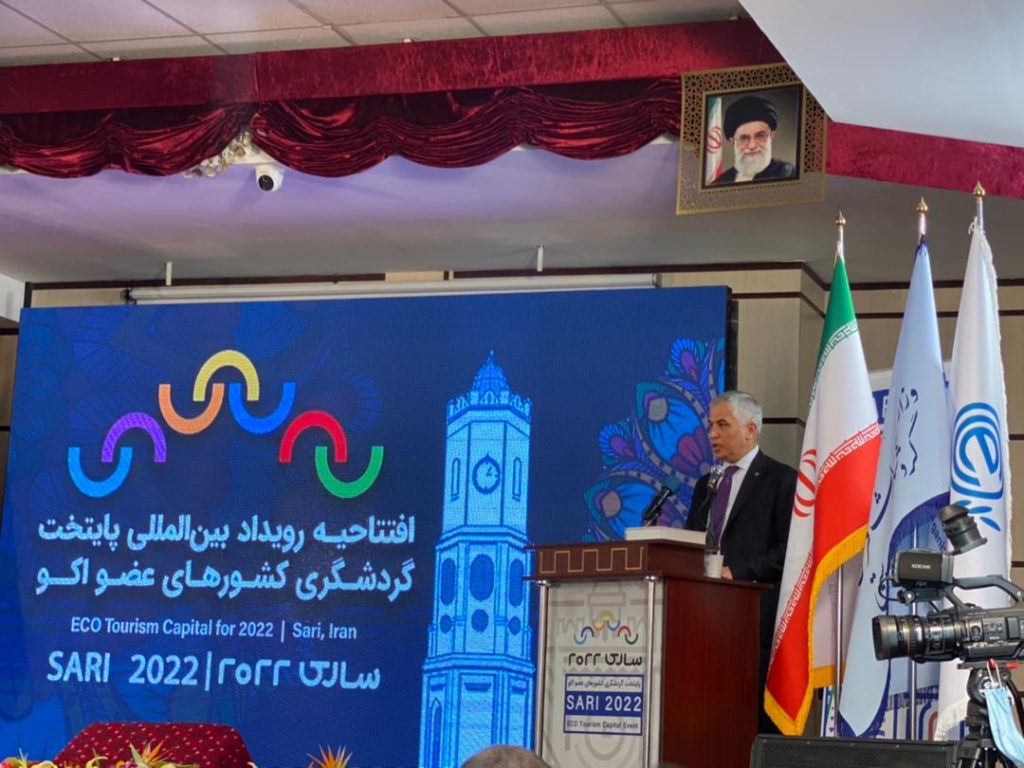
The ECO Secretary General H.E. Mr. Khusrav Noziri underscored the importance of tourism that occupies a central place on ECO’s agenda. He conveyed the Organization was deeply determined for accelerating the promotion of regional tourism industry through development of proper policies and strategies as well as relevant projects. He considered that the proclamation of Sari as ECO Tourism Capital for 2022 reflects ECO’s commitment and will stand along the indigenous communities to help them flourish and prosper, showcasing their tourism potential and capacities at greater scale and sight.
He also underscored the significance of other ECO initiatives for an enhanced trade and connectivity as well as increased people-to-people contacts aimed at securing greater regional integration. Concluding his remarks, the Secretary General presented a Certificate to the Governor General of the Mazandaran Province regarding the declaration of Sari as ECO tourism Capital for 2022.
The Minister of Cultural Heritage, Tourism and Handicrafts of Islamic Republic of Iran, H.E. Mr. Ezzatollah Zarghami explained that the core idea behind the ECO Tourism Capital (s) is to encourage the Member States for developing their relevant national plans and programs with the ultimate aim of poverty alleviation in the region.
Besides, it is targeted at seeking large-scale attention to nature, religious, health and culture tourism to support the overall socioeconomic wellbeing of the region. He believed Sari to be the right choice for ECO Tourism Capital since the city is regarded the symbol of whole Iranian land. He also underlined the importance of Road Tourism considering the borders’ linkages amongst the Member States.
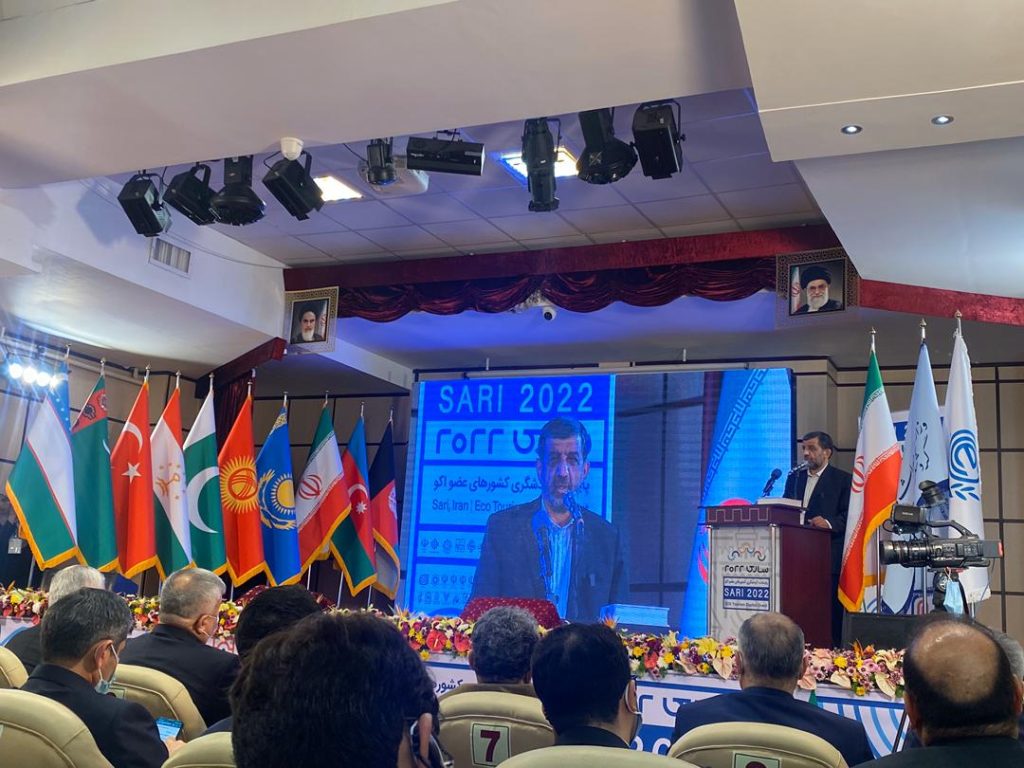
During their visit to Sari, the delegates attended the opening of exhibition on commercial, agricultural, fisheries, mining, handicrafts, cultural heritage and tourist attractions of the Mazandaran province. They also visited Dashte Naz farming Company to familiarize with agro tourism potential of the area. The delegations were also taken to the various tourist sites of the province for their exposure and ecstasy.
